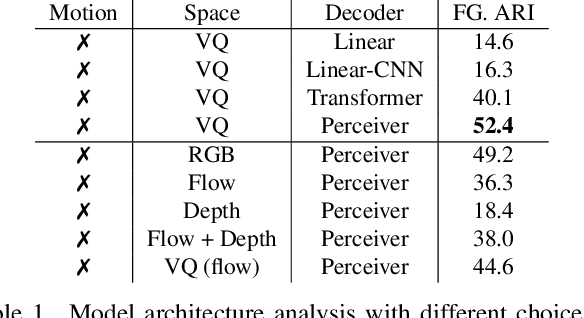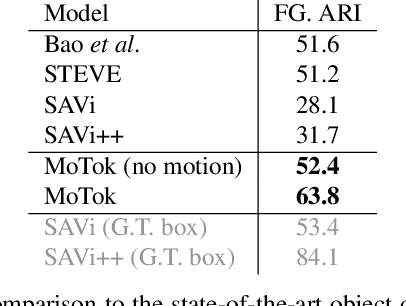Object Discovery from Motion-Guided Tokens
Paper and Code
Mar 27, 2023



Object discovery -- separating objects from the background without manual labels -- is a fundamental open challenge in computer vision. Previous methods struggle to go beyond clustering of low-level cues, whether handcrafted (e.g., color, texture) or learned (e.g., from auto-encoders). In this work, we augment the auto-encoder representation learning framework with two key components: motion-guidance and mid-level feature tokenization. Although both have been separately investigated, we introduce a new transformer decoder showing that their benefits can compound thanks to motion-guided vector quantization. We show that our architecture effectively leverages the synergy between motion and tokenization, improving upon the state of the art on both synthetic and real datasets. Our approach enables the emergence of interpretable object-specific mid-level features, demonstrating the benefits of motion-guidance (no labeling) and quantization (interpretability, memory efficiency).
 Add to Chrome
Add to Chrome Add to Firefox
Add to Firefox Add to Edge
Add to Edge